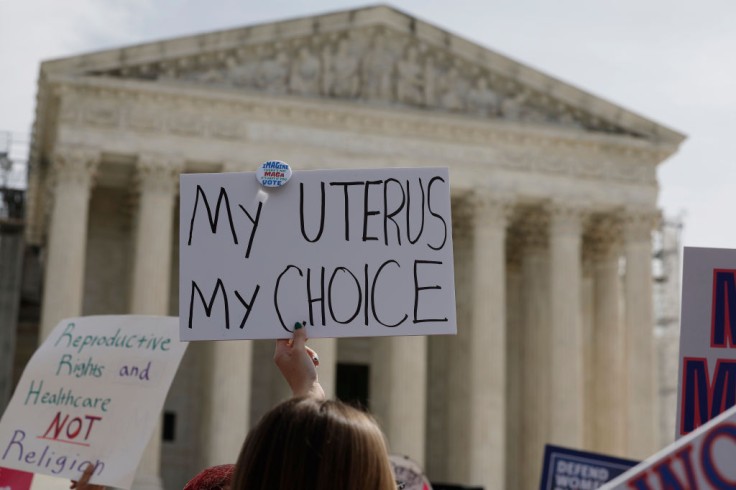
The Arizona Supreme Court's latest decision on Tuesday supported the enforceability of a near-total abortion ban from 1864, which has been on the state's legal records for 160 years.
This ruling has important significance, efficiently making Arizona one of the states where access to abortion care is seriously limited.
Arizona Supreme Court Upheld the Enforceability of Near-Total Abortion Ban
The 1864 law in Arizona criminalizes abortion, commanding penalties of two to five years in prison for people involved in performing or facilitating abortions.
Although the law holds an omission to safeguard the life of the childbearing mom, it otherwise constrains abortion from the time of fertilization.
Despite being lawful long before Arizona acquired statehood and surviving numerous legal challenges, including a recent appellate court ruling, the 1864 ban remained in place. However, there has been confusion encompassing its enforcement, especially after the introduction of a 15-week ban in March 2022.
The appellate court originally recommended that the two laws could be settled, but later pointed out that the 15-week ban antiquated the older law, creating doubt regarding the legality of abortion at several stages of gestation.
The latest ruling by the Arizona Supreme Court explains that the 1864 ban is enforceable, possibly leading to the conclusion of abortion clinics in the state. However, the court has pronounced deferment implementation for 14 days and mentioned the case back to a lower court to address added constitutional difficulties.
In answer to the ruling, Arizona's Attorney General, Kris Mayes, has declared her unwillingness to enforce the law, blaming it as draconian and highlighting her obligation to safeguard women's reproductive rights.
This viewpoint has drawn support from Democrats, including President Joe Biden and Vice President Kamala Harris, who have critiqued the decision as an attack on women's freedom and promised to ongoing fight for reproductive rights.
The ruling has sparked severe debate among political figures in Arizona, with calls for the cancellation of the 1864 ban from Governor Katie Hobbs, a Democrat. However, Republican lawmakers have not shown an urgent enthusiasm to address the concern.
Advocates Proposed Constitutional Amendment Establishing Abortion Rights
Despite the delay, reproductive rights supporters plan to petition the ruling and are aggressive about a proposed constitutional amendment that would build abortion rights in Arizona.
If successful, this measure could invalidate the 1864 ban and safeguard abortion access up to the 24th week of gestation. The decision indicates the continuing battle over abortion rights in Arizona and emphasizes the issue's importance in upcoming elections.
With the possibility of voter initiatives to shape future policies, the result of these debates could have far-reaching indications for reproductive rights in the state and across the country. The decision made on Tuesday, though not entirely extraordinary, bothered reproductive rights advocates.
All seven justices of the Arizona Supreme Court, appointed by Republican governors, scrutinized the absence of explicit language in the 15-week ban, which left uncertainty regarding its intended relationship with the long-standing 1864 ban during the court proceedings in December.
However, during the ruling, only six justices participated as Justice Bill Montgomery recused himself. The Arizona Supreme Court's chief justice chose not to appoint another judge to fill the vacancy, an alternative available under Arizona law.
The abortion legal landscape in Arizona has been specifically complicated since the overturning of Roe v. Wade. Although the 1864 law was temporarily stopped after the Roe decision in 1973, Arizona's then-Attorney General Mark Brnovich, a Republican, successfully moved to lift the injunction in 2022 following Roe's overturning.
Related Article: Arizona Abortion Rights Amendment Supporters Assert They Exceeded Signatures for 2024 Ballot